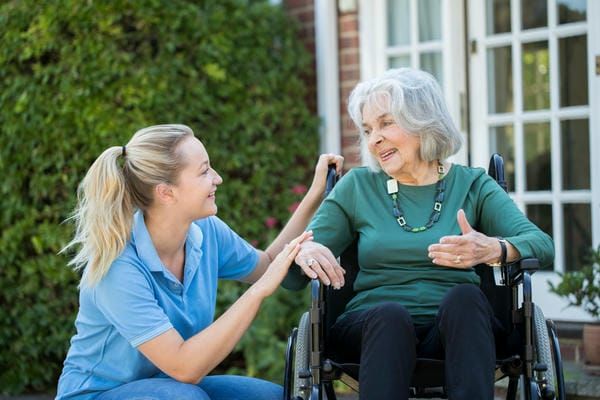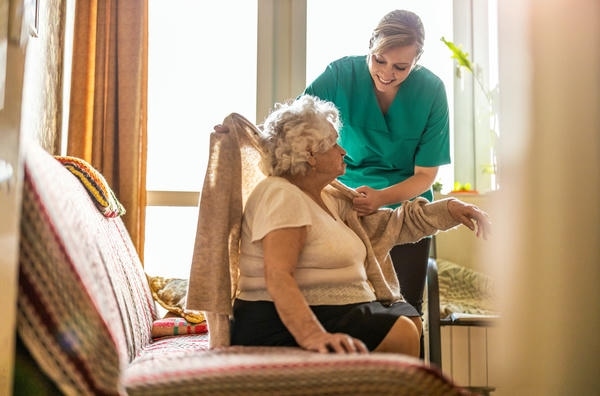As we journey through life, the importance of maintaining a high quality of life becomes increasingly apparent, especially as we enter our golden years. For older individuals, quality of life encompasses a multitude of facets, including physical health, emotional well-being, social connections, and the ability to maintain independence. In this article, we will explore several key strategies to enhance the quality of life for seniors, ensuring they can live fulfilling, meaningful lives filled with joy, purpose, and dignity.
The Pillars of Physical Health and Well-being
The foundation of a high quality of life for older individuals lies in maintaining good physical health. As the body ages, it becomes crucial to engage in regular exercise tailored to one’s abilities. Low-impact activities such as walking, swimming, or gentle yoga can work wonders in improving mobility, strength, and overall health. Imagine the feeling of vitality that comes from taking a refreshing swim on a sunny morning or the sense of accomplishment after completing a leisurely walk through a beautiful park. These simple yet effective forms of exercise not only keep the body in shape but also rejuvenate the spirit.
In addition to staying active, a balanced and nutrient-rich diet plays a vital role in supporting overall health. By consuming a variety of fruits, vegetables, whole grains, lean proteins, and healthy fats, older individuals can provide their bodies with the essential building blocks for optimal functioning. A well-balanced diet can also aid in preventing or managing chronic conditions such as diabetes, hypertension, and arthritis, which are common concerns among the elderly population.
Regular medical check-ups and preventive care are equally important aspects of maintaining physical health. By staying up-to-date with vaccinations, screenings, and timely treatments, older individuals can detect and address health issues early on, leading to better management and outcomes. It is essential to encourage seniors to prioritize their health and not hesitate to seek medical attention when needed. By taking a proactive approach to their well-being, older adults can significantly enhance their physical health and quality of life.
Nurturing Emotional and Mental Well-being
While physical health is undoubtedly important, the state of one’s emotional and mental well-being is equally crucial in determining the quality of life for older individuals. As we age, it is not uncommon to face challenges such as loneliness, depression, or anxiety. These emotional hurdles can cast a shadow over daily life, diminishing the joy and fulfillment that should be experienced during the golden years.
To combat these challenges, providing emotional support and fostering a positive mindset is of utmost importance. Encouraging older adults to engage in activities they find meaningful and enjoyable can work wonders in uplifting their spirits. Whether it’s pursuing a beloved hobby like painting or gardening, losing oneself in the pages of a captivating book, or simply savoring a cup of tea while admiring the beauty of nature, these small moments of joy can make a world of difference in an older person’s life.
Practicing mindfulness and relaxation techniques, such as meditation or deep breathing exercises, can also be incredibly beneficial for emotional well-being. By taking a few moments each day to quiet the mind and focus on the present moment, older individuals can cultivate a sense of inner peace and resilience. These practices can help manage stress, alleviate anxiety, and promote a more positive outlook on life.
It is also crucial to encourage older adults to seek professional help if they are experiencing persistent mental health issues. Therapy or counseling can provide them with valuable coping strategies and a safe space to express their emotions. By prioritizing emotional and mental health, we can help seniors navigate the ups and downs of life with greater ease and resilience.
The Power of Social Connections
As social beings, we thrive on meaningful connections with others. For older individuals, maintaining strong social ties is vital for their mental and emotional well-being. Loneliness and isolation can have detrimental effects on the quality of life, leading to feelings of despair and a sense of disconnection from the world around them.
Encouraging older adults to stay socially active and engaged is a powerful way to combat these negative emotions. Participating in community activities, joining clubs or interest groups, and staying connected with family and friends can provide a robust support system that nourishes the soul. Imagine the joy and laughter that fills the room during a weekly card game with friends or the warmth and love felt during a family gathering filled with shared meals and heartfelt conversations.
In today’s digital age, technology has become an invaluable tool for bridging the gap and keeping older individuals connected with their loved ones. Video calls, social media platforms, and online communities offer opportunities for seniors to interact with family members and friends, even if they are physically distant. A simple video call with a grandchild can brighten an entire day, while sharing photos and updates on social media can help seniors feel more involved in the lives of their loved ones.
Organizing regular family gatherings, outings, or even virtual events can strengthen bonds and create cherished memories that will be treasured for years to come. By nurturing social connections, we can help older individuals feel valued, supported, and an integral part of their communities.
Empowering Independence and Self-sufficiency
Independence is a fundamental aspect of human dignity and a key contributor to the quality of life for older individuals. Maintaining a sense of autonomy and self-sufficiency can boost self-esteem, promote a sense of purpose, and enhance overall well-being.
To support older adults in their quest for independence, it is essential to provide them with the tools and resources they need to navigate daily life with ease. Simple home modifications, such as installing grab bars in the bathroom, adding ramps for easier access, or placing non-slip mats in high-traffic areas, can greatly enhance safety and mobility. These small changes can make a significant difference in an older person’s ability to move around their home comfortably and confidently.
Encouraging older adults to engage in activities of daily living, such as cooking, cleaning, or managing their finances, can also contribute to a sense of self-sufficiency. By performing these tasks independently, seniors can maintain a sense of control over their lives and feel more connected to their surroundings.
Assistive devices, such as walkers, hearing aids, or magnifying glasses, can also be invaluable tools in promoting independence. These devices can help older individuals overcome physical limitations and engage more fully in activities they enjoy. By providing access to these resources, we can empower seniors to lead more autonomous and fulfilling lives.
Stimulating the Mind and Pursuing Lifelong Learning
Maintaining cognitive health is just as important as physical well-being when it comes to enhancing the quality of life for older individuals. Engaging in intellectually stimulating activities and pursuing lifelong learning can keep the mind sharp, promote mental agility, and provide a sense of accomplishment.
Encouraging older adults to explore new interests, attend classes or workshops, or engage in online courses can open up a world of possibilities for intellectual growth. Learning a new language, delving into the fascinating realm of history, or mastering a musical instrument can provide endless hours of mental stimulation and personal satisfaction.
Engaging in mentally challenging activities, such as solving puzzles, playing strategy games, or participating in lively discussions, can also help keep the mind active and alert. These activities not only provide entertainment but also offer opportunities for social interaction and bonding with others who share similar interests.
Furthermore, encouraging older adults to share their knowledge, experiences, and wisdom with younger generations can be incredibly rewarding. By passing down their insights and life lessons, seniors can feel valued and respected, knowing that their contributions are making a positive impact on the lives of others.
The Vital Role of Caregivers in Enhancing Senior Well-being
Behind the scenes of many thriving older adults are dedicated caregivers who play a crucial role in enhancing their quality of life. These unsung heroes provide essential support in various aspects of daily living, ensuring that seniors receive the care and attention they need to live their best lives.
Caregivers are instrumental in managing the health of older individuals. They assist with medication management, ensuring that seniors take their prescribed medications correctly and on time. They also help schedule and attend medical appointments, serving as valuable advocates and ensuring that any health concerns are addressed promptly.
Beyond medical care, caregivers provide invaluable assistance with activities of daily living. From helping with bathing and dressing to preparing nutritious meals and keeping the living space clean and organized, caregivers enable seniors to maintain their dignity and independence in the comfort of their own homes.
The emotional support provided by caregivers cannot be overstated. They offer companionship, lend a listening ear, and provide a comforting presence during times of loneliness or distress. By building strong, trusting relationships with the seniors they care for, caregivers can significantly boost their emotional well-being and overall quality of life.
Caregivers also play a vital role in ensuring the safety and security of older individuals. They assess the living environment for potential hazards, make necessary modifications to prevent falls and accidents, and provide supervision when needed. This constant vigilance and attention to detail help create a safe haven where seniors can live with peace of mind.
Finally, caregivers are often the bridge that connects older adults to the outside world. They facilitate social activities, plan outings, and help seniors stay engaged with their communities. By encouraging social interaction and participation in meaningful activities, caregivers help combat the isolation and loneliness that can often accompany aging.
Conclusion
Enhancing the quality of life for older individuals is a multifaceted endeavor that requires a holistic approach. By focusing on the key aspects of physical health, emotional well-being, social connections, independence, and intellectual stimulation, we can create an environment where seniors can thrive and live their golden years to the fullest.
It is essential to remember that each older individual is unique, with their own hopes, dreams, and aspirations. By treating them with respect, dignity, and compassion, we can help them navigate the challenges of aging while celebrating the wisdom and beauty that comes with a life well-lived.
As a society, it is our collective responsibility to support and empower older individuals, ensuring that they have access to the resources, care, and opportunities they need to maintain a high quality of life. By working together, we can create a world where aging is embraced as a natural and valuable part of the human experience, and where every senior has the chance to live a life filled with joy, purpose, and fulfillment.





